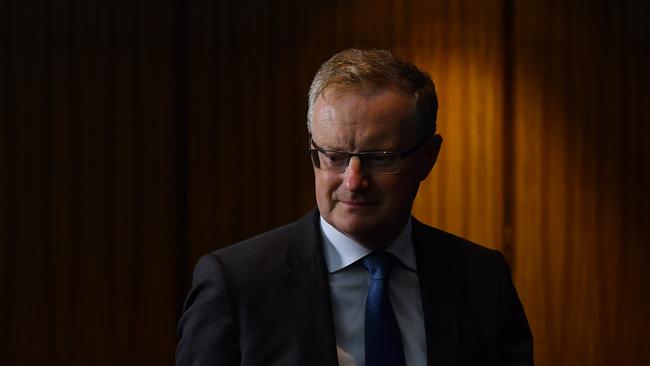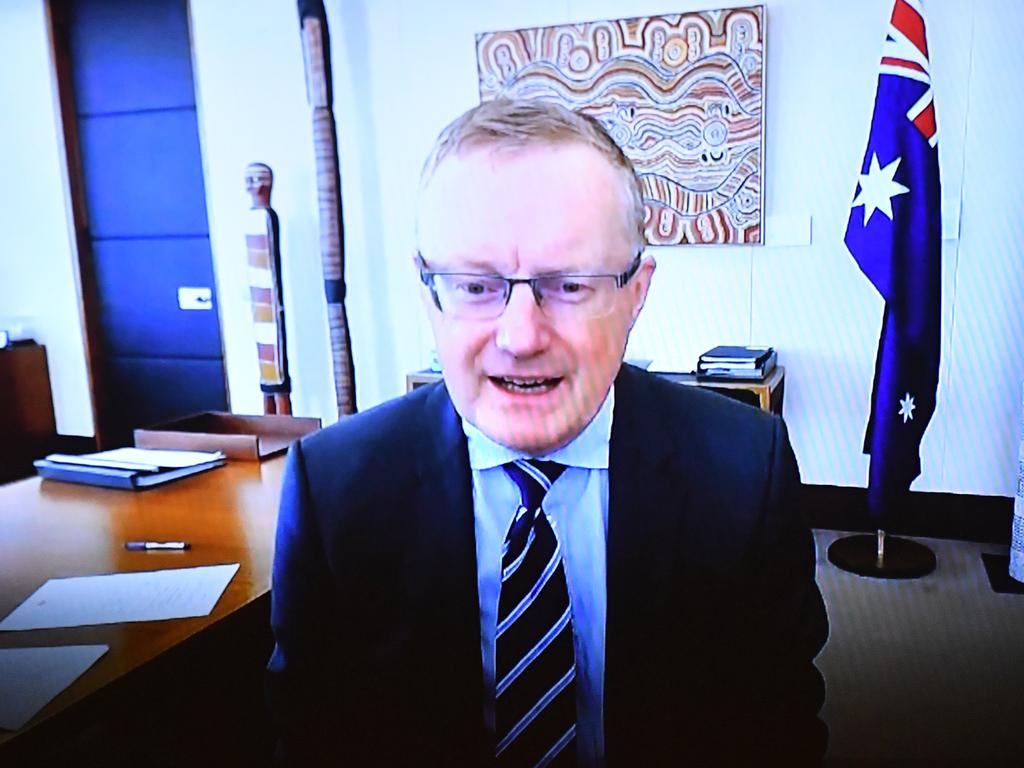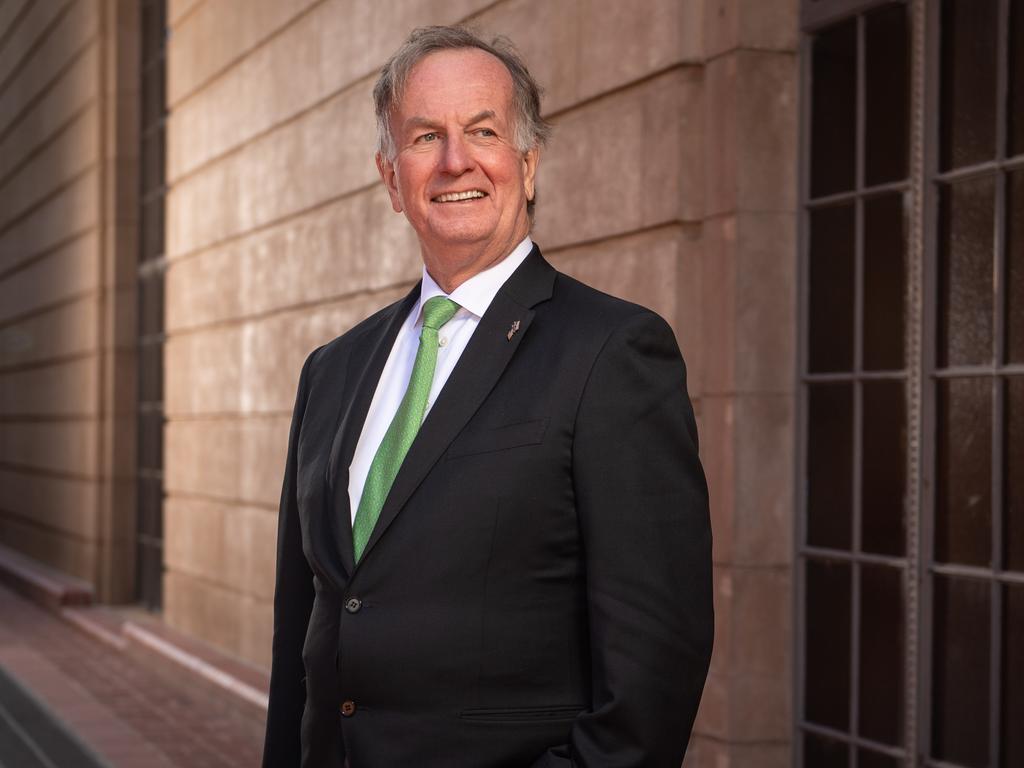Debt and deficits ‘manageable’, says RBA governor Philip Lowe
RBA governor Philip Lowe has blasted calls to ‘print money’ to boost growth, saying record deficits were ‘entirely manageable and affordable’.

Reserve Bank governor Philip Lowe has endorsed record public debt and deficits during the coronavirus pandemic as an “entirely manageable and affordable” to limit the severity of “costly economic scars” caused by high unemployment.
In a major speech in Sydney on Tuesday that aksi took a swipe at calls for “money printing” the RBA governor said the government could borrow “on very favourable terms” and public debt was “much lower that in many other countries and was likely to remain so”.
“For a country that has got used to low budget deficits and low levels of public debt, this is quite a change but it is a change that is entirely manageable and affordable and it’s the right thing to do in the national interest,” he said.
The comments came soon after the Prime Minister announced an extension of emergency social security measures JobKeeper and JobSeeker into 2021, at reduced rates, which UBS on Tuesday estimated could cost almost $20bn.
Dr Lowe blasted calls for the central bank to “print money” to pay for government spending, stressing it risked an inflation blowout and was “clearly not relevant to the situation we face in Australia”.
The RBA governor took apart the increasingly popular demand that the central bank should give newly created money to government or even households directly – sometimes called “helicopter money” – using its power to create money.
“There is no free lunch. The tab always has to be paid and it is paid out of taxes and government revenues in one form or another,” Dr Lowe said. “The message here is that somebody always pays”.
“I want to make it very clear the monetary financing of fiscal policy is not an option under consideration in Australia, not does it need to be,” he added.
The governor also said the job market overall had “turned the corner” – even though younger people were still bearing the brunt of the recession – but warned professional service firms and builders faced significant lay-offs and reduced workflow as their work pipeline “dried up”.
“If it is not replaced soon, hours worked in these businesses will decline further, just at the same time that other parts of the economy are coming back to life,” he said, pointing to the rebound in jobs in retail, hospitality and arts sectors.
The unemployment rate rose to 7.4 per cent in June, a 21-year high, mainly as a result of more people looking for work given total employment rose 210,000.
“The Governor once again stated that negative interest rates are extraordinarily unlikely in Australia; he also ruled out direct intervention in foreign exchange markets, given that the Australian dollar is currently “broadly in line with its economic fundamentals,” said HSBC chief economist Paul Bloxham.
Dr Lowe said money printing to boost demand could be appropriate where the government couldn’t influence the sum of money the central bank created and where government debt was very high.
“Modern monetary theory”, which advocates monetary financing of budget deficits until unemployment falls the correct level, has gained in popularity since the coronavirus pandemic as governments faced soaring unemployment.
“This idea has attracted a lot of attention recently although many commentators have pointed out that there are likely to be very significant challenges in maintaining this type of safeguard over time,” he added.
The Reserve Bank has purchased around $50bn in state and federal government bonds since March as part of a new quantitative easing program that has kept the government’s three year borrowing rate at 0.25 per cent.
“Since late April we have scaled back purchases significantly and have not needed to purchase any bonds for some time,” Dr Lowe said.
Kristina Clifton, an economist at Commonwealth Bank, said it was “worth noting the Governor said that changes to the monetary policy package could be configured differently down the track if warranted”
“He wants us to know that the RBA’s fire power is not yet exhausted,” she added.








To join the conversation, please log in. Don't have an account? Register
Join the conversation, you are commenting as Logout